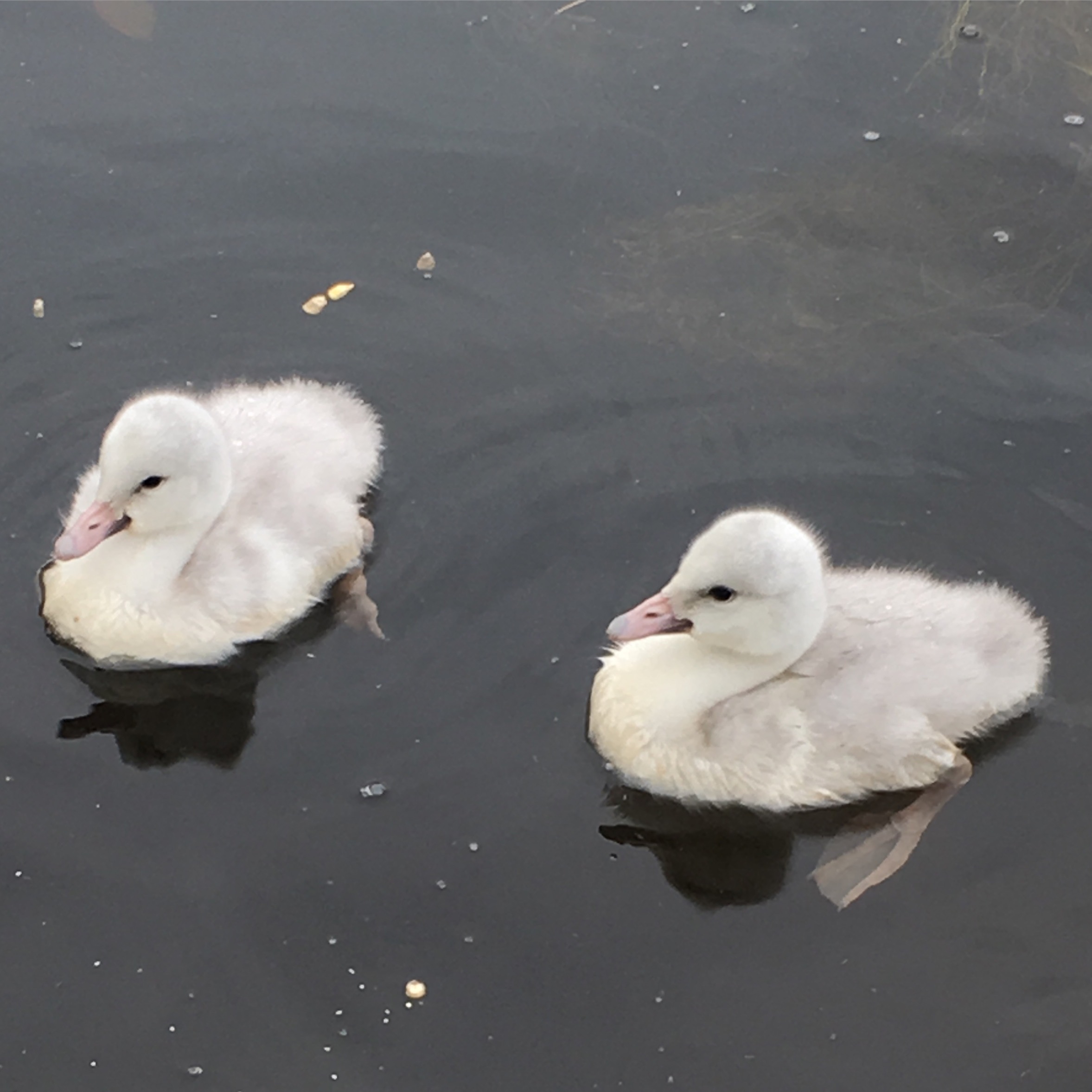Trumpeter Swans and their Families
29 Jul 2016
So we've covered the topic of birds and their nests - but that brings up the topic of bird families and specifically Trumpeter Swan families. We've been very fortunate to have a nesting pair of swans here at the marsh for as long as we can remember.
 Trumpeter Swans are territorial in the spring/summer months as they are ready to make a family. Swans will pair up over the winter months and when spring hits they fly off in pairs and settle into a nesting area they feel will suit their family. If a swan is not yet old enough to have a family they sometimes stay all alone, or may hang out in small groups of independant teenager swans.
Trumpeter Swans are territorial in the spring/summer months as they are ready to make a family. Swans will pair up over the winter months and when spring hits they fly off in pairs and settle into a nesting area they feel will suit their family. If a swan is not yet old enough to have a family they sometimes stay all alone, or may hang out in small groups of independant teenager swans.
The Wye Marsh has had a few different pairs lay claim to the immediate Wye Marsh wetland - and at least 5 other nesting pairs throughout the marsh area (it is over 3000 acres). Most recently our pair of resident swans are Amazon (H34) and Brutus (E84). Amazon and Brutus are not the best parents, in previous years their cygnets (baby swans) have not lived to tell their tales! Being a swan parent requires some dedication, sacrifice and also dilligence. Fortunately enough this year (*touch wood) Amazon and Brutus have two cygnets that are growing well and we are very hopeful for their successful fledging (remember that means the life stage in which birds are ready to learn to fly). For a swan fledging time is the fall months, September, or October. The parents teach the cygnets how to fly and stay with them until the Spring when they are ready to pair off again to create a new families all over again.
 Now before the babies are even born - the parents select an area for the nest and construct a nest to have their eggs in. Trumpeter swans have between known to have between 3-10 eggs in a single nest. The Trumpeter Swan will lay one egg a day until all the eggs in the clutch are laid. Once the eggs are all laid, the swan will begin the incubation period of approximately 35 days. Amazon and Brutus's cygnets are approximately 4 weeks old now.
Now before the babies are even born - the parents select an area for the nest and construct a nest to have their eggs in. Trumpeter swans have between known to have between 3-10 eggs in a single nest. The Trumpeter Swan will lay one egg a day until all the eggs in the clutch are laid. Once the eggs are all laid, the swan will begin the incubation period of approximately 35 days. Amazon and Brutus's cygnets are approximately 4 weeks old now.
One of the behaviours that we've seen in Amazon and Brutus this year is what I've coined the 'running man'. It is a behaviour in which the parents move their feet under the water in order to stir up food for the cygnets. I was able to film the following video that shows Amazon doing the running man, this video also catched Amazon in the process of showing off her wing span. Swans have a wing span of over 8 feet!
My hopes are up that Amazon and Brutus manage to raise their two little ones to the point of adulthood (*touch wood). They are a sweet pair of swans that have a love for corn and duck pellet, and I'm certain their children will be just like their parents.

 Our Supporters:
Our Supporters:












